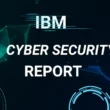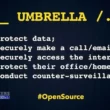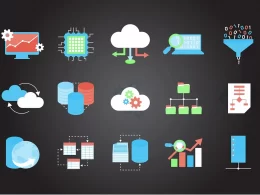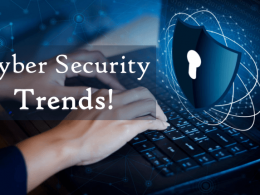Hacking is one of the most prominent ongoing threats to your business. Since so much commerce is done through digital devices these days, there’s a lot to lose in the event of a data breach.
Unfortunately, hackers know that many small businesses have neither the knowledge nor the resources to comply with best cyber security practices, which makes them a prime target for attacks. If you own a business, educating yourself about possibilities of cybercrime is imperative to keeping your important information safe.
Hacking Explained
So, what is hacking exactly? The term refers to any kind of activity that seeks to compromise digital devices like computers, cellphones, tablets and even networks as a whole. For the most part (although legitimate organizations like the FBI can also perform hacking), it’s characterized by malicious intent, referring to illegal activity conducted by cybercriminals.
Hacking can be motivated by a variety of reasons, like spying or protest, but financial gain is the most common. As cybersecurity provider Malwarebytes puts it, “Hacking has evolved from teenage mischief into a billion-dollar growth business.”
Hackers can make money in a variety of ways. They’re on the lookout for profitable data that they can either use themselves to commit crimes like fraud and identity theft, or they may sell sensitive information on the dark web once it’s obtained.
One of the most prominent ways that cybercriminals succeed in stealing information from businesses is through malware. This is a blanket term for any kind of malicious software created by hackers to disrupt your system and access sensitive data. Cybersecurity experts advise that one of the most common mistakes of business owners is under-estimating the weight of these threats.
Threats to Be Aware Of
Many types of malware can be delivered to you or your employees through either phishing expeditions or Trojan horses – both of these are crucial to be aware of. Phishing typically takes the form of a legitimate-looking email to your company that links to malware, and Trojan horses are disguised as authentic-looking software. Below are some examples of malware that can cause data breaches:
- Computer viruses are the most commonly known type of malware, and they rapidly replicate on your system as they change or delete files on your device.
- Computer worms spread throughout your entire network, quickly infecting all computers within your business as they modify and delete data.
- Spyware is a sneaky form of malware that spies on you and employees, saving company information and reporting it to cybercriminals.
- Keyloggers are a specific type of spyware that records your keystrokes, looking for identifiable information that can be sold for a profit or assist criminals in committing fraud.
- Ransomware is a particularly damaging form of malware that allows hackers to lock your vital files, systems or even your entire network, forcing you to pay a ransom to gain control again. This has been called the cybercriminal’s attack of choice, because the ransom is paid in the form of a nearly untraceable cryptocurrency.
In order to combat these threats, you need the right anti-malware software. There are many options on the market, but the best cybersecurity solutions will clean your system identifying and removing any current threats, as well as prevent future ones.











